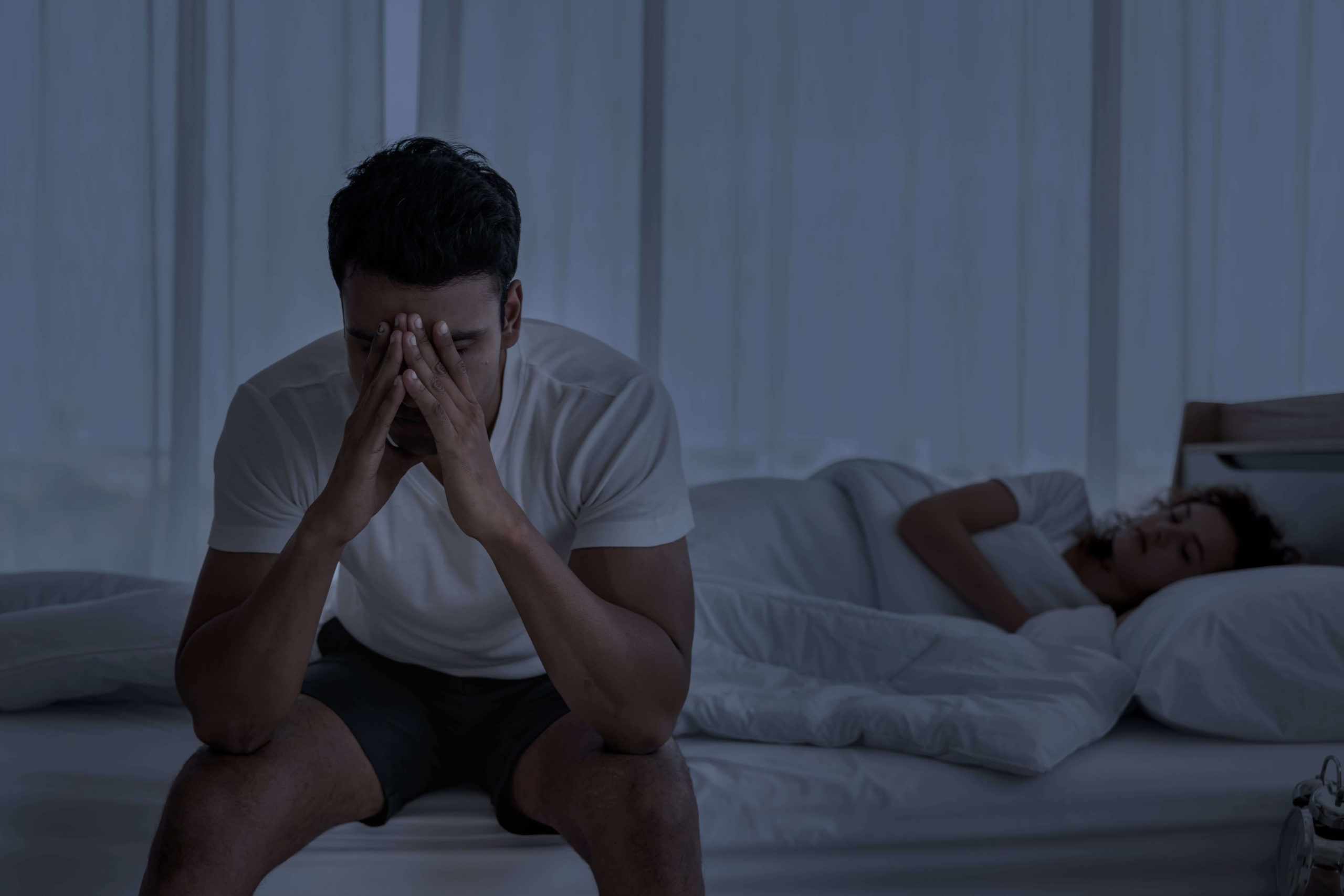Insomnia is never fun, and chronic sleep issues can affect a person’s health and life. But insomnia doesn’t just affect one person; it also impacts that person’s partner and loved ones. Learning how to support the person with insomnia is not only helpful for them, but it also can be helpful for the romantic partners of the insomniacs, who get drawn into their sleep issues.
More About Insomnia
According to the Cleveland Clinic, sleep disorders are common and affect about 70 million Americans annually. People experience three kinds of insomnia: difficulty falling asleep initially, problems staying asleep, or waking up earlier than desired.
Some people deal with periodic bouts of insomnia, while others experience the sleep disorder for more extended periods. Two kinds of insomnia exist:
- Short-term insomnia — lasts for a few days or weeks; often triggered by stress. An estimated 33% to 50% of American adults experience short-term insomnia.
- Chronic insomnia — sleep difficulties occur at least three times a week for three months or more. Anywhere from 10 to 15% of people deal with this form of insomnia.
While the amount of sleep people need can vary, seven to nine hours is typically the recommended amount. Additionally, the quality of sleep matters just as much, so tossing and turning will also leave a person feeling unrested.
Causes of Insomnia
A variety of factors cause an individual to experience insomnia, from their environment to physical issues to psychological concerns. Other causes include:
- Life stressors including jobs, relationships, financial difficulties, and more
- Unhealthy lifestyle and sleep habits
- Anxiety disorders, depression, and/or other mental health problems
- Chronic diseases like cancer
- Chronic pain due to arthritis, fibromyalgia, or other conditions
- Gastrointestinal disorders, such as heartburn
- Hormone fluctuations due to menstruation, menopause, thyroid disease, or other issues
- Medications and other substances
- Neurological disorders, such as Alzheimer’s disease or Parkinson’s disease
- Other sleep disorders, like sleep apnea and restless legs syndrome
Women experience insomnia more often than men. People over 60 are also more likely to have insomnia, often due to medical conditions or other aging-related body changes.
Insomnia can have serious consequences for individuals:
- Daytime tiredness or sleepiness
- Irritability, depression, or anxiety
- Difficulty paying attention, focusing on tasks, or remembering
- Increased errors or accidents
- Struggling at work, school, or in relationships.
How to Help Someone with Insomnia
Insomnia is a chronic illness and should be thought of that way. While some behaviors can contribute to it, a loved one dealing with this issue should be given sympathy, not judgment. One way to help a partner with insomnia is to practice good sleep hygiene with them. That means having a regular bedtime routine, abstaining from electronics before bed, and only using the bedroom for sleep or sex, among other suggestions.
Emotional support and encouragement are other ways to aid a loved one with insomnia. Remind them that things will improve and that people care for and support them. Suggest activities like hanging out with friends or exercising to help take the person’s mind off their insomnia.
Another thing to consider is investing in the best possible bed. An old or uncomfortable mattress could be contributing to the problem. It may even be helpful to sleep apart if it will help the insomniac sleep better. This doesn’t mean that the relationship is in trouble, simply that the insomniac is searching for some way, any way, to get a good night’s sleep.
Treatments for Insomnia
If none of the suggestions above have worked, it might be time to suggest to the person with insomnia that they seek medical assistance. Some therapies and medications can help treat insomnia. A health care provider will do a physical exam and possibly ask the person to do a sleep study before determining the best course of action, which could include:
- Cognitive Behavioral Therapy for Insomnia: Therapy (CBT-I) — a brief, structured treatment that teaches the person how to identify and replace thoughts and behaviors affecting their sleep with habits that promote sound sleep.
- Medications — in the short term, sleeping pills can help, but doctors recommend taking them sporadically and only for a short time.
Behavior and lifestyle changes offer the best and most healthy way to help someone improve their sleep over the long term. Most importantly, remember that the person wants to sleep and is trying. Be supportive and understanding until it happens.
A licensed mental health and substance abuse intensive outpatient program (IOP) in Scottsdale, Arizona, Rising Phoenix was created to offer a safe, welcoming, and nurturing environment where clients are not judged, but embraced, throughout their recovery process.

